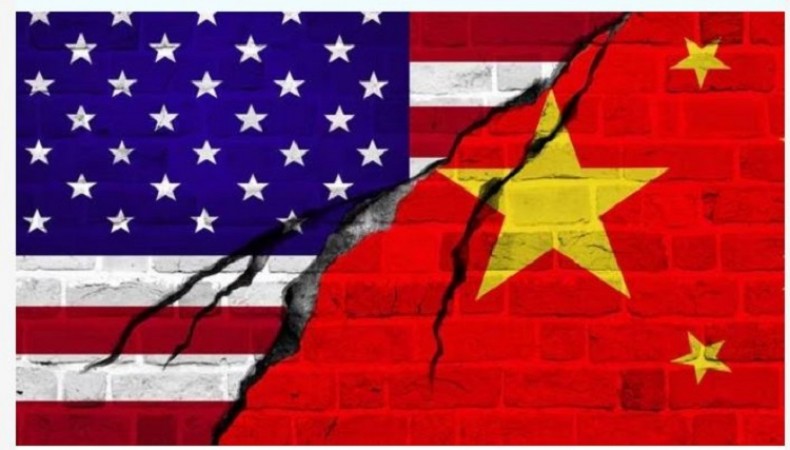
NEW YORK: Anticipating a forthcoming executive order from the Biden administration that's poised to restrict private-equity and venture-capital investments in select Chinese technology enterprises. This action aligns with Washington's strategic pursuit to curb Beijing's advancement in cutting-edge technology catering to its military endeavors.
The executive order's coverage is expected to encompass direct investments across three distinct technology sectors, namely semiconductors, quantum computing, and artificial intelligence. This prohibition will encompass particular iterations of these technologies, coupled with an obligation for American entities conducting business within China to furnish the U.S. government with comprehensive details regarding investments within these high-tech sectors.
Transgressors of these regulations might find themselves subject to fines and potentially required to divest their holdings, as per insights from sources familiar with the forthcoming order. Notably, prior to the implementation of these novel regulations, the Biden administration is anticipated to solicit feedback on the proposed measures. Importantly, these guidelines are geared towards prospective transactions and will not encompass portfolio investments in Chinese stocks and bonds, as elucidated by the aforementioned sources.
While the technical ambit of these rules might extend to investments in other adversary nations like Russia, their tangible impact is forecasted to primarily zero in on U.S. investment activities in China.
A spokesperson from the Treasury declined to provide commentary on this matter. At the crux of this executive order lies a growing, bipartisan apprehension that American technological advancements and expertise could inadvertently bolster Beijing's arsenal, potentially positioning it against the U.S. in potential military conflicts. The preceding year witnessed the Biden administration already imposing constraints on exporting advanced semiconductors and chip-manufacturing equipment to China. Furthermore, the U.S. has intensified its scrutiny of Chinese investments in American technology firms.
Although the Biden administration portrays these measures as targeted endeavors to safeguard U.S. national security interests, Chinese authorities contend that they primarily intend to hinder China's economic progress and developmental pursuits. In fact, Chinese leader Xi Jinping expressed his concerns regarding semiconductor export controls to President Biden. Notably, in what appears to be a response to U.S. export restrictions, China barred its major corporations from procuring technology from Micron Technology—the most prominent memory-chip manufacturer in the U.S.—earlier this year.
This new set of investment restrictions introduces a potential setback to the ongoing thaw in diplomatic interactions between these two global superpowers.
The trajectory of U.S. investment into China, once a driving force behind the nation's economic growth, has decelerated over recent years as geopolitical tensions intensified. Direct U.S. investment in China plummeted to a two-decade low of $8.2 billion in the preceding year, as documented by the Rhodium Group. Moreover, venture-capital investment from the U.S. plummeted to a ten-year low of $1.3 billion during the same period.
It remains unclear how much of these investments are channeled into the sectors specifically targeted by these measures. An analysis conducted by researchers from Georgetown University unveils U.S. investors' involvement in 401 transactions concerning Chinese artificial intelligence companies between 2015 and 2021. These investments, solely attributed to American investors, amassed to a staggering $7.45 billion over the stated timeframe.
As the contours of this executive order were etched, officials within the Biden administration grappled with the delicate task of delineating forms of artificial intelligence that pose predominant national-security risks from those that cater to broader commercial applications—this insight originates from sources close to the deliberations.
Even prior to their official implementation, these newfound capital controls have already instigated shifts in the behavior of U.S. investors. Sequoia Capital, a prominent venture-capital fund, bifurcated its China-oriented operations earlier this year, driven by sustained scrutiny from the Washington establishment. Other investment firms have either slowed or suspended transactions involving China as they await the rollout of these novel regulations, as per individuals familiar with their strategic considerations.
In the political arena of Washington, industry associations sought to narrow the scope of these rules, a product of the Biden administration's year-long labor in crafting them.
Alternate propositions for constraining U.S. investment within China have surfaced. A bipartisan coalition of lawmakers previously advocated for the establishment of an interagency panel tasked with evaluating investments across a broader spectrum of technologies. In a display of continuity, two legislators revived elements of this proposal, securing their inclusion via an amendment to the Senate's annual defense-policy bill. Their proposal pivots towards necessitating disclosures of investments, rather than enforcing outright prohibitions—an approach that might not ultimately evolve into law.
Representative Mike Gallagher, hailing from Wisconsin, alongside the House committee with a dedicated focus on China, have championed constraints that extend to the considerably larger influx of U.S. portfolio investment directed towards China. Notably, the committee took issue with BlackRock and MSCI, a prominent compiler of stock market indices, for facilitating investment in Chinese enterprises that the U.S. government has accused of bolstering China's military capabilities and violating human rights.
Within the corridors of the Biden administration, representatives from the Treasury and Commerce departments have successfully maneuvered to narrow the ambit of this executive order, based on insights from sources familiar with the internal deliberations. Treasury officials, historically oriented towards advocating for augmented U.S. investment within China rather than its restriction, grappled with the challenge of framing regulations that can be effectively enforced. Additionally, they sought to uphold the multitude of U.S. investment flows and advocated for precision by directing regulations towards technologies with pronounced sensitivity to national-security concerns.
Concurrently, the U.S. has embarked on a diplomatic campaign urging its European and Asian allies to adopt parallel measures to curtail investment within China. This strategic effort is designed to thwart companies from merely rerouting capital through cities like London or Tokyo. After sustained diplomatic outreach by the U.S., the Group of Seven—a consortium of advanced democracies--endorsed the notion that capital controls could serve as a valuable complement to the existing arsenal of targeted export and inbound investment controls. Correspondingly, the European Commission has tabled proposals for the adoption of investment restrictions across the 27-member bloc, delineating a unified stance on the matter.